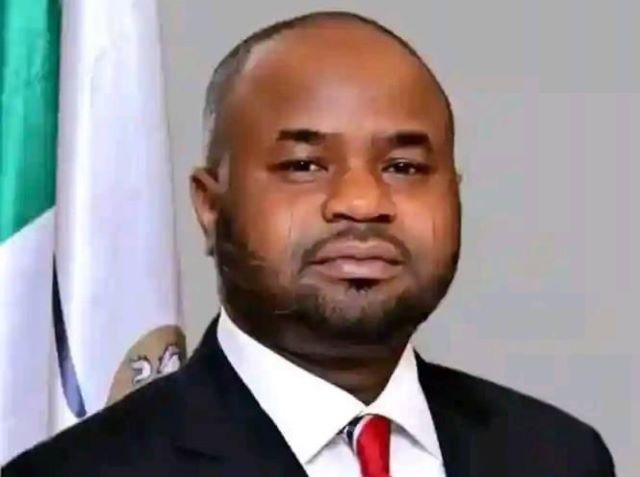In a moment that will echo through the corridors of Nigeria’s economic history, four landmark tax reform bills were signed into law on the 26th of June, 2025, triggering what may become the most consequential shift in Nigeria’s fiscal architecture since independence.
More than just legal instruments, these new laws are the outcome of deliberate, courageous leadership, anchored by none other than Zaccheus Adelabu Adedeji, Executive Chairman of the now rebranded Nigerian Revenue Service (NRS), formerly the Federal Inland Revenue Service (FIRS).
For a man who has quietly mastered the art of institutional turnaround, this moment is neither accidental nor unexpected. It is the natural result of years of strategy, execution, and deeply rooted understanding of systems, traits Dr. Adedeji has displayed consistently throughout a distinguished career that spans the private sector and public service.
From cutting his professional teeth as a financial strategist at Procter & Gamble, to his tenure as Commissioner for Finance in Oyo State under Governor Abiola Ajimobi, and former Executive Secretary of the Nigerian Sugar Development Council, Zacch Adedeji has demonstrated a rare capacity to combine vision with results. Today, he wears a badge of reform, not just in title but in the legacy he is building for Nigeria.
The rebranding of the Federal Inland Revenue Service to Nigerian Revenue Services is not merely cosmetic. It symbolizes a philosophical reset. We are moving from a tax institution built to extract, to one designed to serve, simplify, and stimulate growth.
Until now, most people do not even know what FIRS does than, “they collect tax”. With unending awareness campaigns and sensitization modules, the scope of knowledge of the average Nigerian is getting widened. Now, we know more than seeing just the FIRS logo on event flyers and the times companies get letters of non-compliance warnings. This new identity mirrors what is obtainable in leading economies, where tax systems are structured not just to collect revenue but to unlock economic potential, expand the middle class, and build trust between government and citizens.
With the four new tax laws, Nigeria has formally embarked on a journey that prioritizes clarity over complexity, inclusion over intimidation, and technology over tradition. For the everyday Nigerian, from the market woman in Bodija to the tech entrepreneur in Lekki or Wuse 2, these reforms could bring about practical changes that matter.
All hopes are high to see a reduction in the informal sector’s exposure to extortion and arbitrary levies, replacing chaos with predictability; making tax compliance easier, faster, and more accessible, especially through digital platforms and mobile technology; ensuring that the wealthy and corporate giants pay their fair share, closing loopholes that have long eroded national revenue and above all funding real development across the nation like roads, schools, hospitals, just not through loans or aids, but through our own systems working as they should.
This era is not about taxing the poor more. It is about ensuring the rich do not escape and the poor are supported. It’s about equity.
Last Wednesday, June 25th, 2025, I spent over six hours at the FIRS HQ at Sokode Crescent to visit an Egbon, and you can tell truly that a new wave of air is here. From the ground floor to the upper floors, organization, clarity, and effectiveness seemed everyone’s surname. Even when the Boss was out of office, you could see action is acting! There are leaders who inherit working systems, and then there are leaders who build new ones from scratch. Zacch Adedeji belongs to the latter.
His years at P&G refined his understanding of operational discipline and corporate innovation. As Finance Commissioner in Oyo State, he was instrumental in growing Internally Generated Revenue without placing additional burdens on citizens, leaning heavily on digital tracking and fiscal transparency. At the Nigerian Sugar Development Council, he tackled inefficiencies in a strategic sector and pushed reforms that enhanced local production and value chain development. Even as the SA to the President on Revenue, he towered than almost everyone else through delivery.
At every step, he has turned complexity into clarity, and now, at the helm of the NRS, he is positioned to do for Nigeria one simple task : make systems work smarter and serve the people better.
As we look forward to the years of NRS, I appeal to the agency to build a fully automated tax system powered by mobile apps, AI chatbots, and real-time compliance tracking while collaborating with units like NYSC, NTA, NOA, VON and religious organizations to take tax education to the grassroots, making tax a familiar, not feared, concept. At given intervals, the service should publish quarterly or bi-annual reports on how tax revenues are used, sector by sector, and project by project. This will inform and cement public trust, as some of us down home in Oyo State look forward to the days when our state will be in safer hands like Zacch’s.
Today’s tax reform is not the end. It is the beginning of a new economic social contract. And under Zacch Adedeji’s watch, the signs are promising. His calm demeanor, analytical mind, and unshakable integrity continue to inspire confidence across sectors. But beyond congratulations, the task now is execution. Real reform is not measured by the laws signed but by the lives improved. With the right political will and citizen support, this moment will not be remembered merely as a policy shift but as the rebirth of Nigeria’s economic identity.
Congratulations once again, Zacch Adelabu Adedeji, a reformer, a builder, and a patriot of uncommon discipline. Nigeria and millions of Nigerians salute you.
- Ademola T. Ajibola is the CEO of Maya Group, a multi-sectoral firm based in Ibadan, the capital city of Oyo State










































































